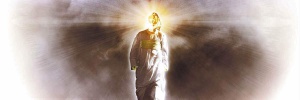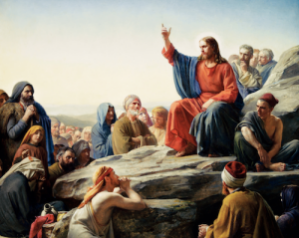Robert King (e-watchman)
How will every eye see Jesus and those who pierced him?
If Christ will not have a visible return to earth, then how will he be seen by “ALL the tribes of the earth” (Mt 24:30) and by “EVERY eye” (Rev 1:7) when he returns?
The Bible ultimately is a product of the mind of God. The apostle Paul explained to the Corinthians how we may understand the thoughts of God. At 1st Corinthians the 2nd chapter he wrote: “Now we received, not the spirit of the world, but the spirit that is from God, so that we might know the things that have been kindly given us by God. These things we also speak, not with words taught by human wisdom, but with those taught by the spirit, as we explain spiritual matters with spiritual words. But a physical man does not accept the things of the spirit of God, for they are foolishness to him; and he cannot get to know them, because they are examined spiritually. However, the spiritual man examines all things, but he himself is not examined by any man. For ‘who has come to know the mind of Jehovah, so that he may instruct him?’ But we do have the mind of Christ.”
As Paul explained, the physical man cannot understand the things of God. He may read them and may assume he understands, but it is not possible.
Take the verse cited in Matthew where Jesus said: “Then the sign of the Son of man will appear in heaven, and all the tribes of the earth will beat themselves in grief, and they will see the Son of man coming on the clouds of heaven with power and great glory.”
Clouds are used in the Bible as a symbol to denote invisibility. That’s because a person on the earth may not be able to see the sun or moon if they are obscured by clouds. But they know that they are there.
The verse above is alluding to the prophecy in the seventh chapter of Daniel, which states: “I kept watching in the visions of the night, and look! with the clouds of the heavens, someone like a son of man was coming; and he gained access to the Ancient of Days, and they brought him up close before that One.”
Obviously, no human can peer into the invisible to see the Ancient of Days – Jehovah God. That is why the son is symbolized as if obscured by the clouds of heaven. So, their seeing Christ coming on the clouds of heaven with power and great glory does not mean they will literally see the face of Jesus Christ.
Moreover, the cited verse states that the tribes of the earth will beat themselves in grief because of the appearance of the “sign of the Son of man in heaven.”
What form the sign will take is unknown at this stage, but in some miraculous way the unbelievers of the world will be forced to realize that they are dealing with a superhuman Jesus Christ. In the same manner they will have to know that Jehovah is God, as the Hebrew prophecies explain in numerous passages. But obviously no human will literally see God.
Besides, those spoken of as seeing the Son of man coming on the clouds with great power will no doubt prefer to not “see” such things. Their seeing him will mean they have come under his adverse judgment. And they will know it. That is why the tribes of the earth will beat themselves in anguish, knowing their doom is sealed – knowing that they have been condemned as incorrigible enemies of both God and Christ.
The verse in Revelation is a copy of what Jesus stated in the 24th chapter of Matthew, with the added detail “and those who pierced him.” How is it possible for the Roman soldiers who pierced Jesus’ side with a spear to be on hand when the Son of man comes upon the clouds of heaven?
Explaining “spiritual matters with spiritual words”, in the 25th chapter of Matthew Jesus went on to state that all the world will be separated into two camps, like a shepherd separates the sheep from the goats. The goats are condemned because they neglected to minister to Christ’s brothers. His words to them will be: “Truly I say to you, to the extent that you did not do it to one of these least ones, you did not do it to me.”
Those who are spoken of as piercing Christ will be those who take the lead in persecuting and killing the brothers of Christ during the conclusion. They will ultimately be confronted by Christ and put to death. Surely, it will not be a pleasant encounter.
It is a privilege to see God and Christ. And only those who are truly chosen by God and adopted as his sons – making them the spiritual brothers of Jesus Christ – will have the unspeakable privilege of seeing the manifestation of Jesus Christ, even while they are still in the flesh.
At present this is a sacred secret, but during the actual parousia the Son of man will reveal himself to all of the chosen ones. It is a privilege to point forward to that unveiling – the very revelation of Jesus Christ.



